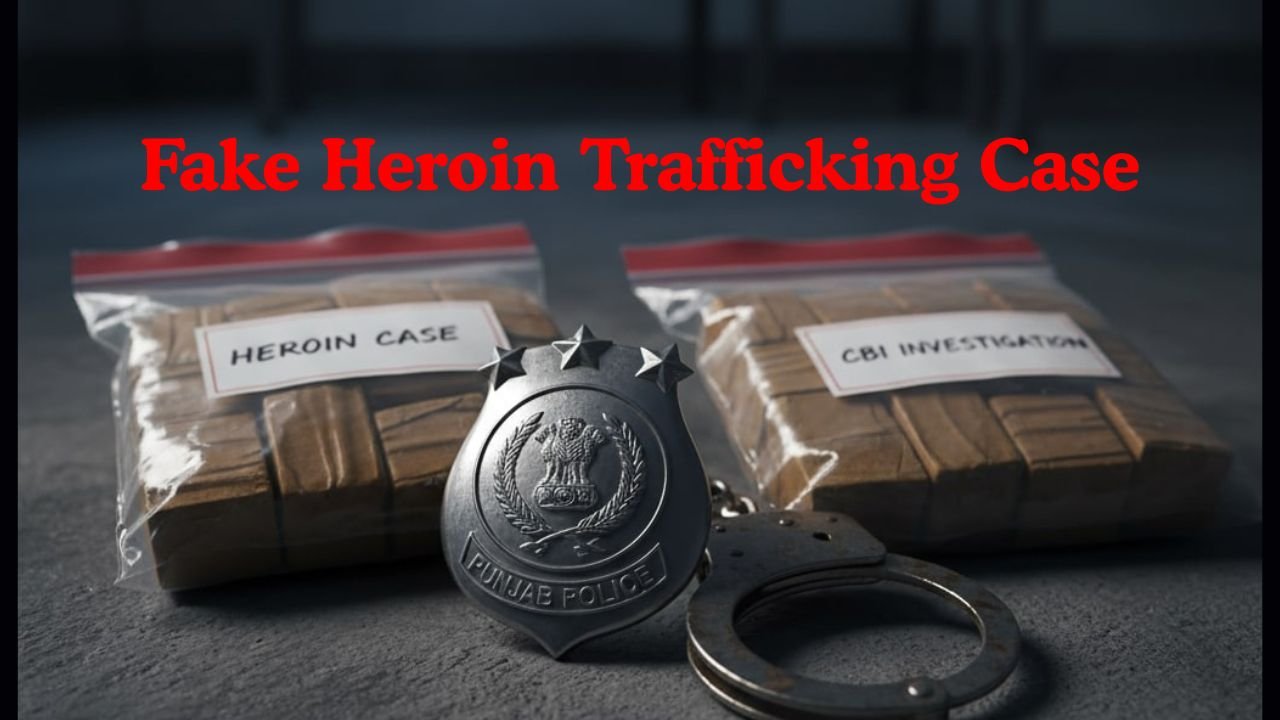Chandigarh | October 28, 2025: Two years after his retirement, former Punjab Police Senior Superintendent of Police (SSP) Rashpal Singh has been arrested by the Special Task Force (STF) in a high-profile heroin smuggling case. The arrest has reignited scrutiny of the state’s policing system, coming just weeks after another senior officer, DIG Harcharan Singh Bhullar, was arrested in a bribery case.
A Trail of Fabricated Evidence and False Charges
The case dates back to 2017, when Rashpal Singh—then serving as an STF chief—led a team that claimed to have recovered one kilogram of heroin from a man named Gurjant Singh, also known as Sonu. However, according to later investigations, Gurjant Singh was quietly released, and the same consignment was shown as recovered from another man, Balwinder Singh.
Balwinder Singh was arrested from the Civil Hospital in Patti, Tarn Taran, and accused of smuggling heroin from Pakistan. The police claimed to have discovered a second cache of 4.5 kilograms of heroin, along with a pistol, magazines, and live cartridges from fields belonging to another accused, Bhaur Singh.
A charge sheet filed in an Amritsar court named Balwinder Singh, Major Singh, and Bhaur Singh—but omitted Gurjant Singh’s name entirely, raising suspicions of a deliberate cover-up.
“This was not a mere procedural lapse—it was a fabricated narrative designed to protect one man and frame another,” said an official familiar with the CBI investigation.
The Chain of Command: Senior Officers Implicated
The case has implicated 10 police officials, including Rashpal Singh, Inspector Sukhwinder Singh, Sub-Inspector Prabhjeet Singh, and several station officers—Kulwinder, Surjeet, Kulbir, Beant, and Kulwant Singh—along with Havildar Hira Singh.
All were named in the CBI’s charge sheet for their alleged involvement in planting evidence and forging official records.
According to sources, the officers allegedly “constructed” a false narrative to demonstrate swift success in counter-narcotics operations at a time when the state was under pressure to show results against drug smuggling networks.
The investigation has drawn uncomfortable parallels between internal policing incentives and fabricated enforcement stories—a phenomenon that, experts say, has long undermined Punjab’s anti-narcotics credibility.
From High Court to CBI: A Legal Battle for the Truth
The sequence of events began to unravel when Balwinder Singh, maintaining his innocence, petitioned the Punjab and Haryana High Court. In November 2019, the court directed the then Director General of Police (Bureau of Investigation), Pramod Ban, to review the case.
Ban’s team examined mobile call records, CCTV footage, and location data, which contradicted the official version of events. These findings suggested that Balwinder Singh had been falsely implicated and that Gurjant Singh, the original suspect, had been shielded.
In January 2021, the High Court transferred the investigation to the Central Bureau of Investigation (CBI). The agency’s subsequent inquiry confirmed fabrication of evidence and filing of misleading reports. A charge sheet was later filed in the CBI Special Court, formally accusing Rashpal Singh and nine others of criminal conspiracy, falsification of records, and wrongful confinement.
A Broader Pattern: Erosion of Trust in Law Enforcement
The arrest of Rashpal Singh comes at a time when Punjab’s police establishment is already reeling from multiple controversies. The recent arrest of DIG Harcharan Singh Bhullar in a corruption case, followed by the unearthing of benami properties and bribery allegations, has amplified public distrust.
Senior legal analysts note that both cases expose a deeper institutional crisis—a culture where law enforcement and illicit networks overlap, and accountability remains elusive.
“These are not isolated incidents,” said a retired IPS officer who once served in Punjab’s intelligence wing. “They reflect a structural breakdown in internal oversight, where personal ambition and political pressure can distort justice itself.”
As the CBI continues its probe, the case of Rashpal Singh—once a decorated officer turned accused—now stands as a stark reminder of how the state’s war on drugs has, at times, mirrored the very criminality it sought to eliminate


